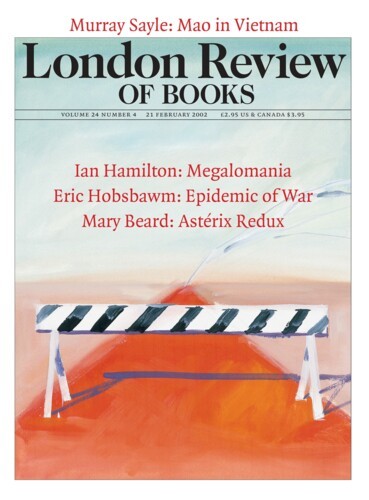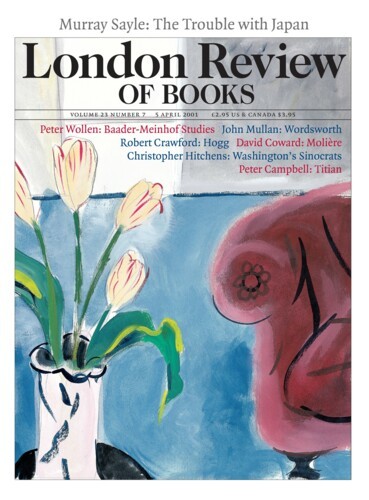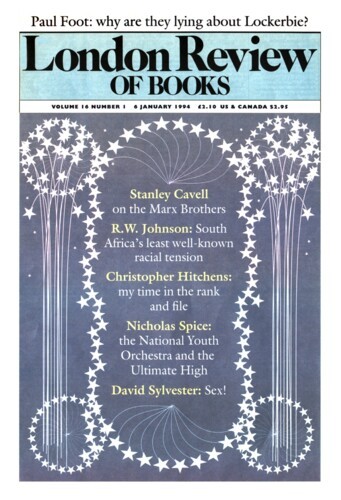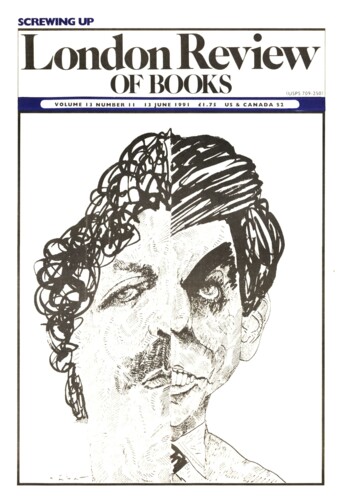Malcolm Deas
Malcolm Deas is a historian of Latin America, and particularly of Colombia, and an emeritus fellow at St Anthony’s College, Oxford, where he taught modern history for almost five decades. He was among the founding staff of the Latin American Centre in Oxford and for a number of years its director.
Plan Colombia
Malcolm Deas, 5 April 2001
In memoriam, Jesús Antonio Bejarano, murdered by unknown assassins on his way to class, 1999.
Many more people continue to die in Colombia than in the Middle Eastern troubles between Israelis and Palestinians, and it’s high time more attention was paid to it internationally. It’s a country in the Northern Hemisphere and its capital city is within easy commuting distance of...
Moths of Ill Omen
Malcolm Deas, 30 October 1997
The Hispanic world is particularly reverential towards its writers, perhaps because, through the vagaries of world history, it has not much else to be reverential about. There are the turn of the century poets who could fill opera houses; the overcoated figures photographed on the Paris boulevards, making it, in what Latin Americans still sometimes call, with touching loyalty, the City of Light; the accounts, in the (unreadable) Sunday cultural supplements of La Prensa, El Universal, El Tiempo, or in certain beautifully printed but contentless monthly reviews, of breakfast conversations in New England when the revered poet was in residence on some campus or other. Matchless friends, great souls, universal intelligences, and often even accomplished cooks. Think how the shadow of Gabriel García Márquez has loomed over Colombia. Thirty years ago he published One Hundred Years of Solitude, the foundation stone of an unmanageable fame rivalled in the Spanish-speaking world only by Fidel Castro – a possible reason for their friendship – and not by many outside it.
Narco Nabobs
Malcolm Deas, 6 January 1994
Pablo Escobar, the world’s most famous drug smuggler, was finally found and killed by the Colombian police on 2 December 1993. Among journalists everywhere he was popular to the end. Most of the reports of his death invoked Robin Hood, and spoke of the mourning of the Medellín poor; and many local people did indeed turn out for his funeral. It was reported and photographed – cries of ‘Pablo, Pablo’, vengeance in the air, grieving sister dressed in black with elbows on coffin – so as to make Medellín appear as much as possible like some people’s idea of Sicily. Most of the expressions of admiration for Escobar, however, should be attributed to a willingness to live up to the questioner’s expectations, or to the Colombian habit of mamando gallo, or keeping one’s end up by saying and doing disrespectful things. The funeral was obviously an occasion not to be missed. A good turnout was not necessarily evidence of grief, but of a readiness to keep in their place authorities who might otherwise think that they had achieved something for which they should be congratulated. Congratulating governments has not figured much in the local political culture, and the national government has not been particularly popular in Medellin in recent years.
Unfair to Latin America
13 June 1991
Read anywhere with the London Review of Books app, available now from the App Store for Apple devices, Google Play for Android devices and Amazon for your Kindle Fire.
Sign up to our newsletter
For highlights from the latest issue, our archive and the blog, as well as news, events and exclusive promotions.





